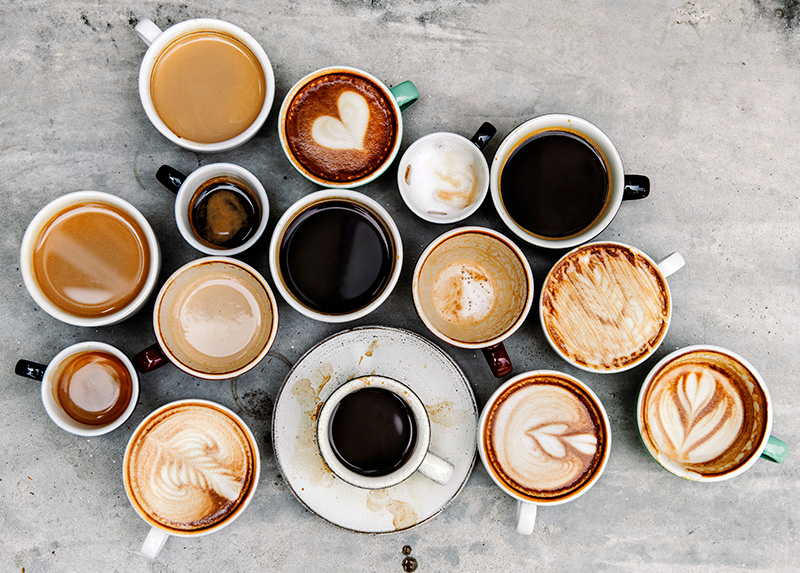More Health and Nutrition Bites
Related
Details on coffee and heart disease
Over the years we've written easily a dozen Health & Nutrition Bites about coffee - and that's barely touching the surface of the amount of research that's been done on what has been called the single largest source of antioxidants in the Western diet.
Coffee, Italian-style
In today's latest edition of Yes, Coffee is Good for You, we have the results from an analysis of the coffee intake habits of Italians, who are known (stereotypically, that is) as one of the world's foremost coffee drinking populations.
Tea or Coffee?
One of the most-repeated pieces of health advice we give is about what to drink: water, tea, or coffee as opposed to fruit juices, sodas, or "energy drinks".
Health & Nutrition Bites
Get the latest health and diet news - along with what you can do about it - sent to your Inbox once a week. Get Dr. Gourmet's Health and Nutrition Bites sent to you via email. Sign up now!
What about sweetening your coffee?

A couple of months ago I shared with you yet another article that showed that coffee is not bad for you: those who drank a moderate amount of coffee every day were less likely have a heart attack or die of heart disease.
With so many ways to make coffee, it's important to specify what kind of coffee people drink: that study was careful to look at the differences between those who drank caffeinated coffee and those who did not as well as whether the coffee was instant or made from ground coffee beans.
Today's research goes a step further: does the kind of sweetener you put in your coffee - if any - matter? (Ann Int Med doi:10.7326/M21-2977) (Now people are just looking for reasons for coffee to be bad for you.)
A team of researchers in China sought to answer the question utilizing data gathered for the UK Biobank study, a long term, large scale prospective survey of over 500,000 UK residents that started gathering data in 2006.
For the analysis the authors excluded those participants who reported having cancer or cardiovascular disease (including heart attack or stroke) at the start of the study, as well as those who did not complete at least 1 dietary questionnaire and those who reported drinking both sweetened and unsweetened coffee on different occasions. Over 170,000 participants remained.
Interestingly, this research not only asked participants what type of coffee they drank - caffeinated versus decaffeinated - but also asked them to specify whether the coffee was made from instant or with ground coffee (i.e., drip coffee or cappuccino). In addition they were asked to specify if they drank their coffee unsweetened, sugar-sweetened, or artificially sweetened as well as how much sweetener they used.
The authors took into account an impressive array of factors - from education to physical activity to specific dietary items such as dairy and fresh fruit intake - to find that while those who drank their coffee without sweeteners were between 16% and 29% less likely to die of any cause, those who added sugar to their coffee were still up to 31% less likely to die of any cause, although those who drank more than 4.5 cups of sweetened coffee per day were slightly more likely to die of any cause.
The association between drinking artifically-sweetened coffee and death from any cause was "less consistent and conclusive", however, leading the researchers to conclude that "moderate consumption of unsweetened coffee and... sugar-sweetened coffee were associated with similar reductions in risk for death.
What this means for you
Is using artificial sweeteners in your coffee something you should worry about? Likely not - the authors also note that "moderate coffee consumption may be an indicator of a normal and healthy lifestyle" - that is, those who drink coffee in any form may simply have a healthier lifestyle in general.
As always, bear in mind that some coffee drinks, such as those topped with whipped cream and containing excessive amounts of sugar syrups, should be considered desserts due to their high caloric content. But your morning coffee is probably safe enough.
June 8, 2022
